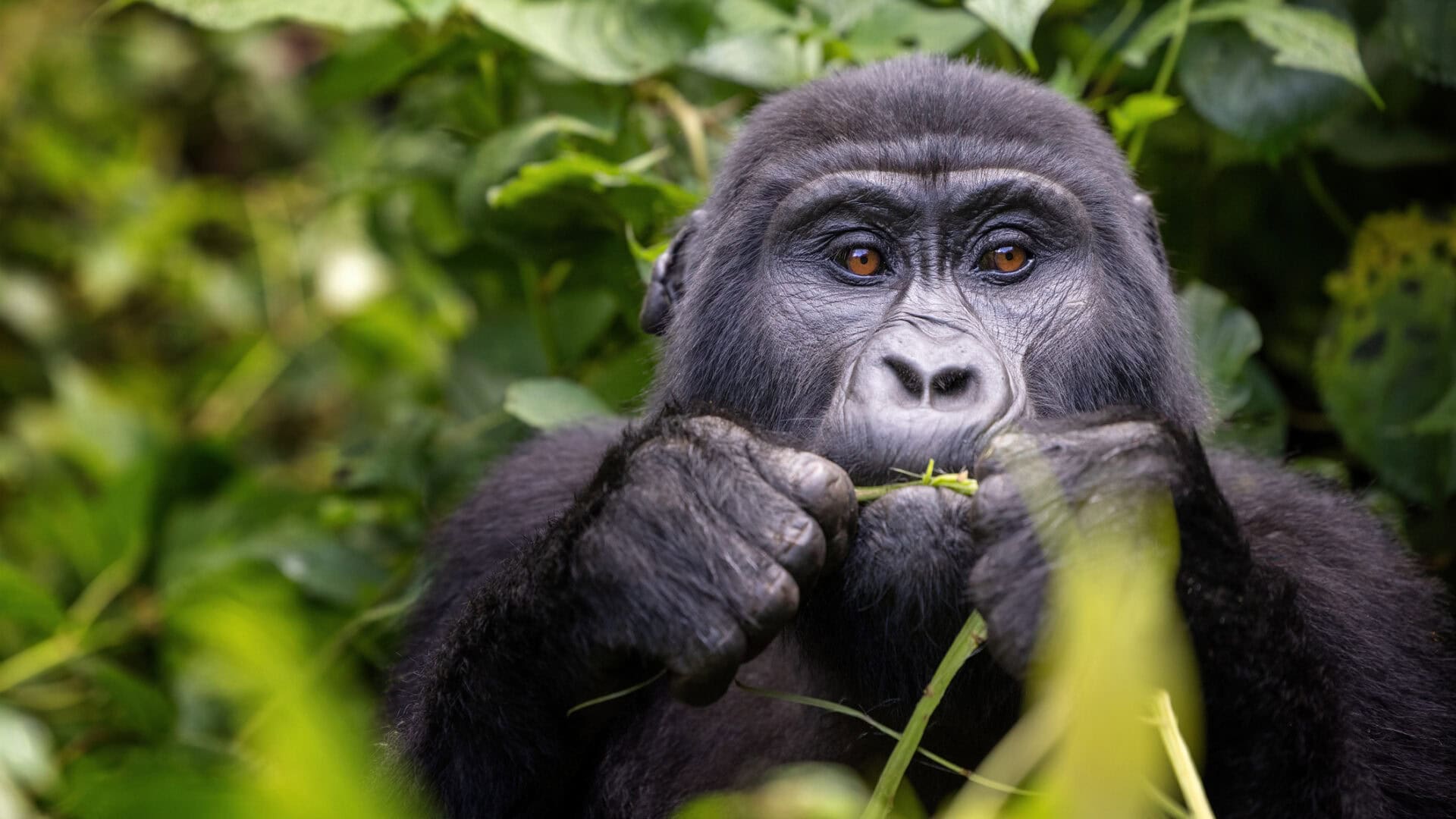A safari in Uganda, known as the Pearl of Africa largely due to its extraordinary natural beauty, offers exceptional experiences with its rich biodiversity and dramatic landscapes.
From tracking mountain gorillas in the lush Bwindi Impenetrable Forest to exploring the savannahs of Queen Elizabeth National Park, Uganda combines traditional game viewing with primate encounters. We design Uganda safari tours to cater to mid-range to luxury budgets, ensuring a memorable adventure in this lush and vibrant country.
Key Factors for Setting Your Budget on an Uganda Safari
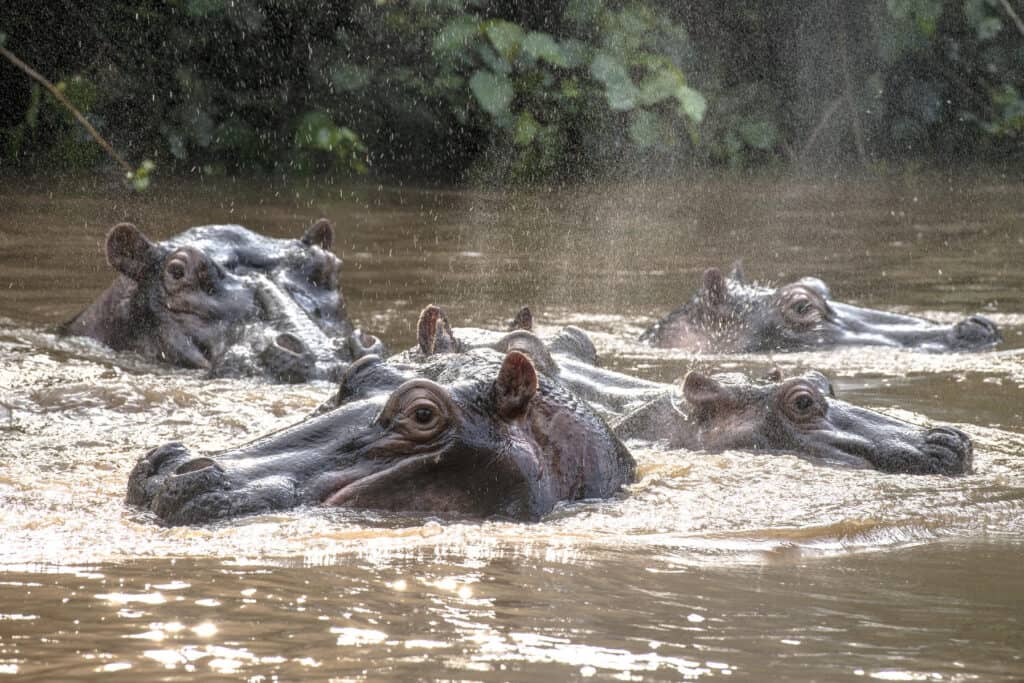
At Discover Africa, we ensure that our pricing is clear and straightforward, with no hidden fees.
Inclusive Estimates, No Hidden Fees
Our Safari Cost Estimator provides all-inclusive estimated pricing for Uganda, covering park fees, conservation fees, and all necessary levies. Our expert travel consultants are on hand to help you determine your exact safar budget based on your expected levels of comfort and safari experience.
This allows you to plan your safari with confidence, avoiding unexpected expenses.
Destination:
Uganda’s safari destinations vary in cost due to factors like accessibility, popularity, and the exclusivity of experiences.
Gorilla trekking in Mgahinga Gorilla National Park or Bwindi Impenetrable Forest is a highlight and commands a premium price due to the cost of permits and the unique nature of the experience.
On the other hand, safaris in Murchison Falls or Queen Elizabeth National Parks offer more budget-friendly options with traditional game viewing and boat safaris.
Accommodation:
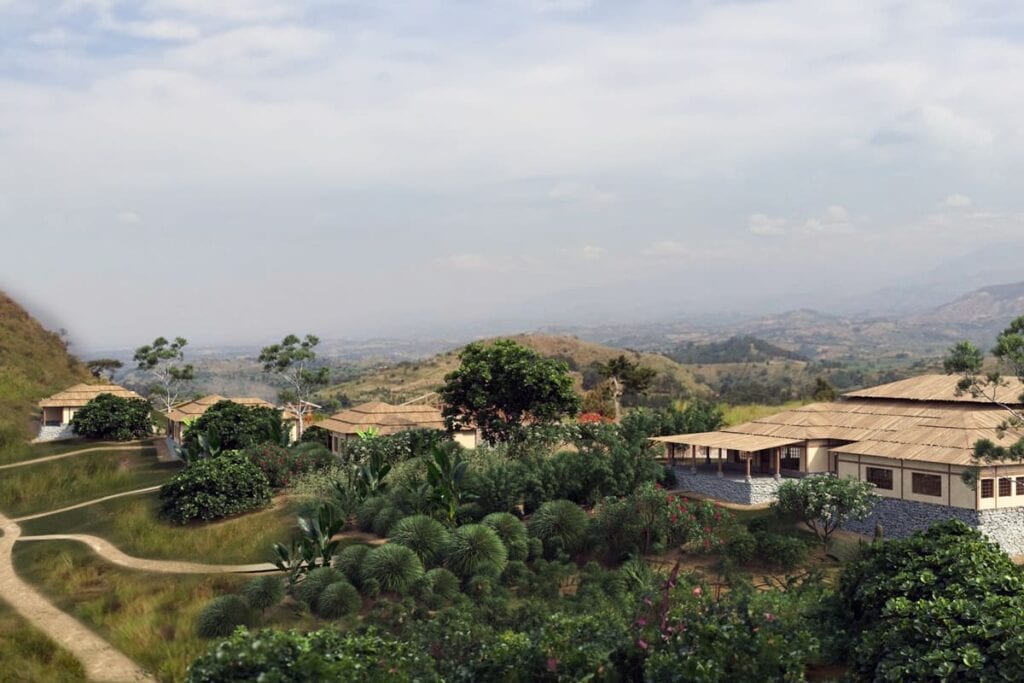
Accommodation is a significant portion of your safari budget. In Uganda your safari accommodation could start at $500 per person per day in the low season, all the way to $1500 per person per day for a more high-end stay.
Time of Year:
The cost of a Uganda safari is influenced by the time of year.
The dry seasons (June to September and December to February) are the peak travel periods due to the best wildlife viewing conditions and easier trekking experiences, leading to higher prices.
However, travelling in the wet seasons can offer more affordable rates, fewer tourists, and vibrant, green landscapes, although trekking conditions may be more challenging.
Duration:
The length of your safari will directly impact your budget. Depending on your accommodation choices and level of luxury, longer safaris provide a deeper immersion into Uganda’s diverse ecosystems but will increase the overall cost.
Group Size:
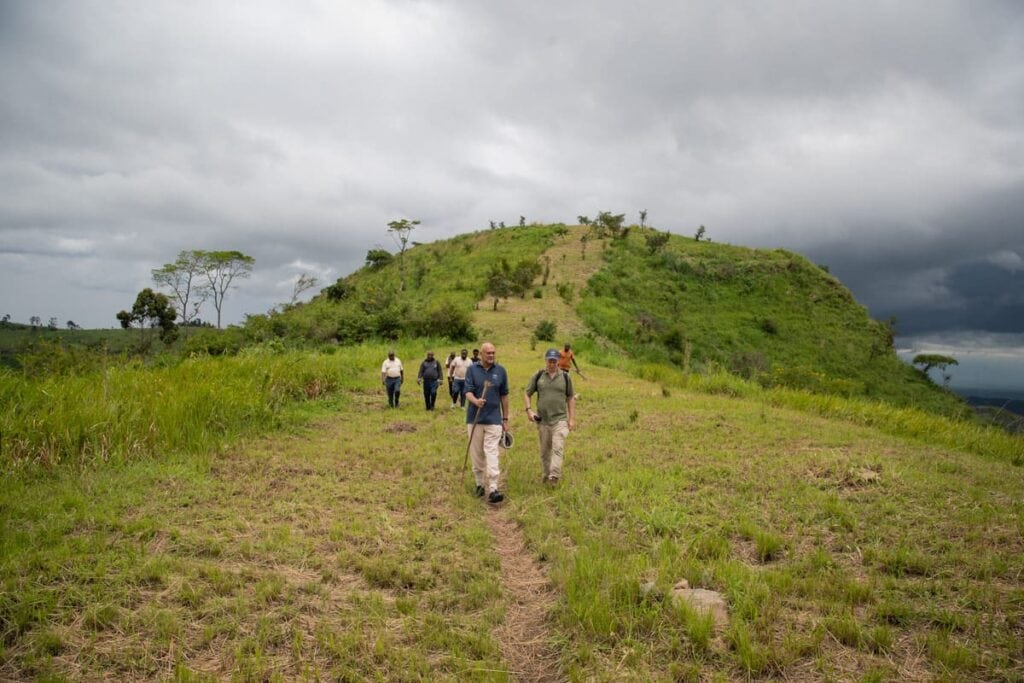
Travelling to Uganda with your multi-gen family or a small group of friends can help reduce per-person costs due to shared expenses, while private safaris offer a more personalised experience at a higher cost, depending on the level of exclusivity and service.
Type of Safari:
Uganda offers various safari types that affect your budget differently. Guided activities like Gorilla Trekking, as part of a private safari, are standard and essential due to the nature of the terrain and activities.
These safaris might range from $400 to $800 per person per day, depending on the quality of the guide and the inclusivity of the package. You also need to factor in the trekking permit costs.
Activities and Excursions:
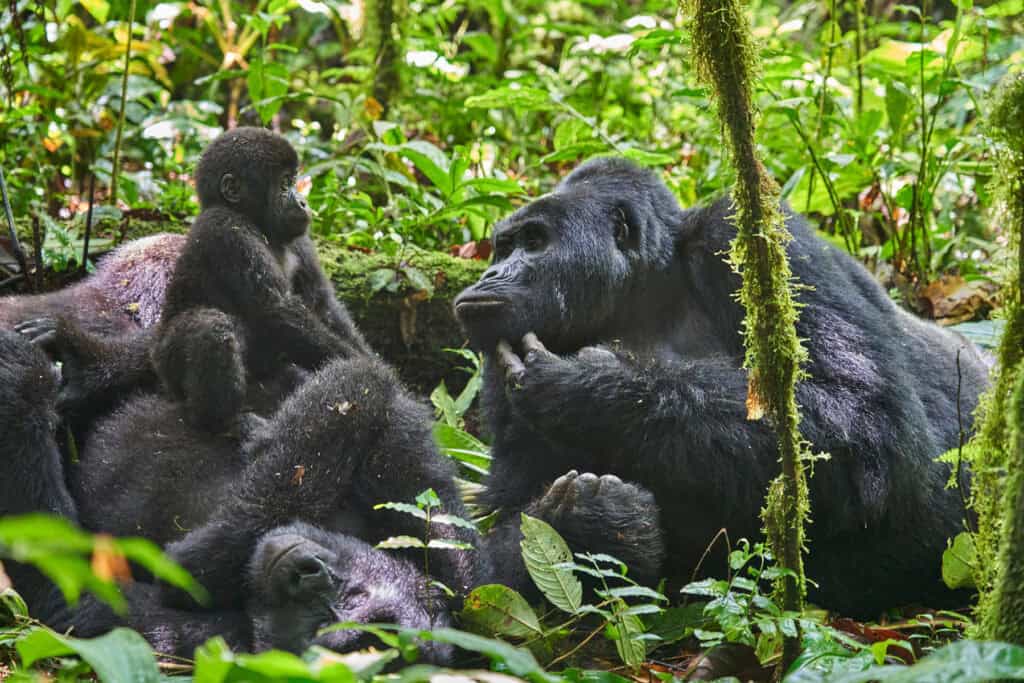
Enhance your Uganda safari with additional activities such as gorilla trekking, chimpanzee trekking, or boat safaris. Gorilla trekking permits are the most significant cost, at about $800 per person.
For 2025, Chimpanzee trekking permits while on a safari in Kibale National Park are $300 per person. Other activities, such as boat safaris on the Kazinga Channel or game drives in Murchison Falls, typically range from $50 to $150 per person.
Park Fees and Permits:
Park fees in Uganda are relatively affordable, but the cost of permits, particularly for gorilla and chimpanzee trekking, can be substantial.
Gorilla trekking permits are $800 per person, while chimpanzee trekking permits are around $200.
Entrance fees for other national parks, like Queen Elizabeth or Murchison Falls, are typically around $40 to $50 per person per day.
Travel and Transfers:
Internal flights or long road transfers may be necessary to reach remote areas like Bwindi or Kidepo Valley.
Domestic flights between parks can add $300 to $500 per person per leg.
Road transfers are more common and can be more economical, with prices varying based on distance and vehicle type, typically ranging from $500 to $600 per transfer. Our expert advisors can help you choose the right option suited to your travel needs.
Meals and Drinks:

Most safari lodges in Uganda offer full-board options, including all meals.
However, it’s important to confirm what’s included to avoid additional costs, especially for drinks.
Luxury lodges in Uganda often include a selection of local beverages, while mid-range accommodations might charge extra for alcohol and premium services.
Our travel consultants can help ensure you know what you’re paying for.
Travel Insurance:
Comprehensive travel insurance is essential for your Uganda safari, covering medical emergencies, trip cancellations, and other unforeseen events.
We do not sell travel insurance directly, but our travel experts can provide guidance if needed. Insurance costs typically range from $75 to $250, depending on the coverage level and duration of your stay.
Tipping and Gratuities:
While not compulsory, tipping in Uganda is voluntary and should depend on the quality of the service. We encourage guests to see this as a way to show appreciation and support for the community. Our guidelines suggest $10 to $20 per person per day for guides and about US$5 to 10 per guest per day for the general staff (tips are usually split amongst the staff).
Most places have a ‘tip box’ for staff (excluding guides), allowing you to leave a collective tip and tip your guide separately. Tip once at the end of your stay at each lodge or camp.
Visas and Vaccinations:
Uganda requires a valid yellow fever certificate for all visitors over 1 year old, including those coming from or transiting through infected areas (Republic of Congo, Kenya and Uganda).
Be sure to check for related information depending on your nationality, including whether you have visa-free access.
Personal Expenses:
Set aside a budget for personal expenses, including souvenirs, additional activities, and incidental costs.
This could range from $100 to $500 depending on your preferences and planned activities, allowing you to bring home memories and mementoes of your Ugandan adventure.






